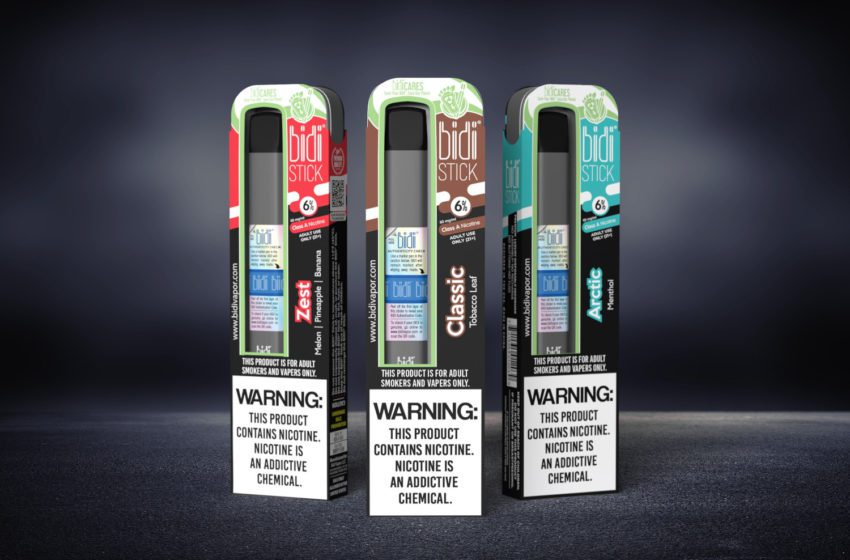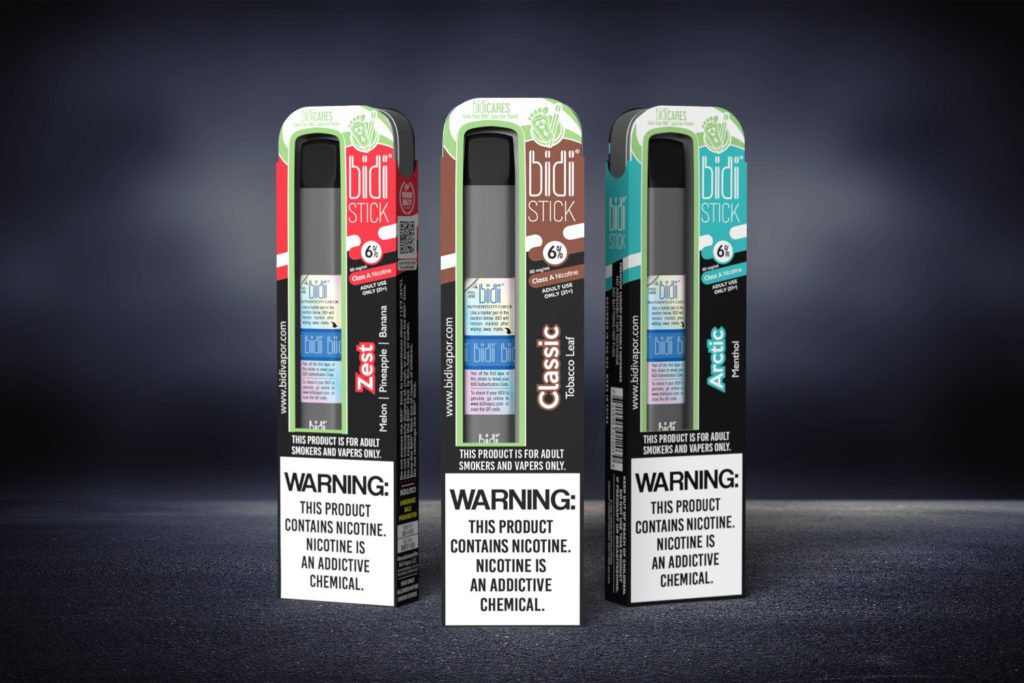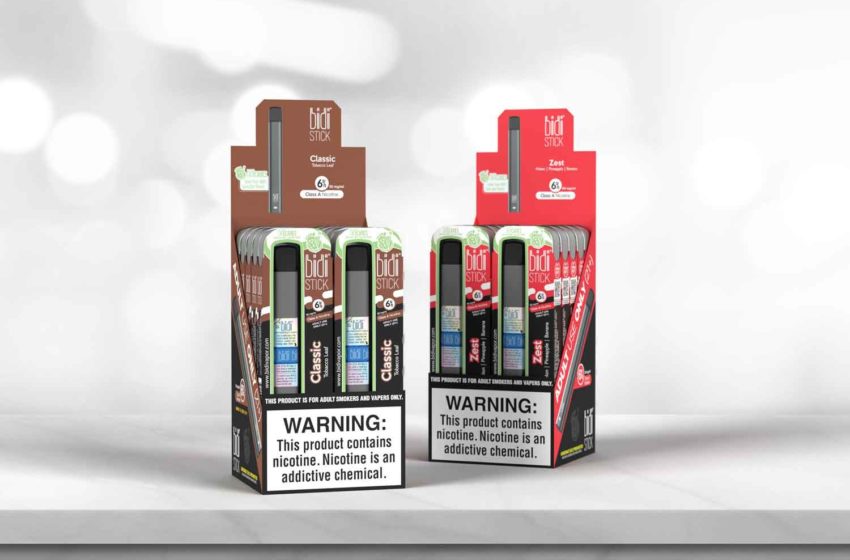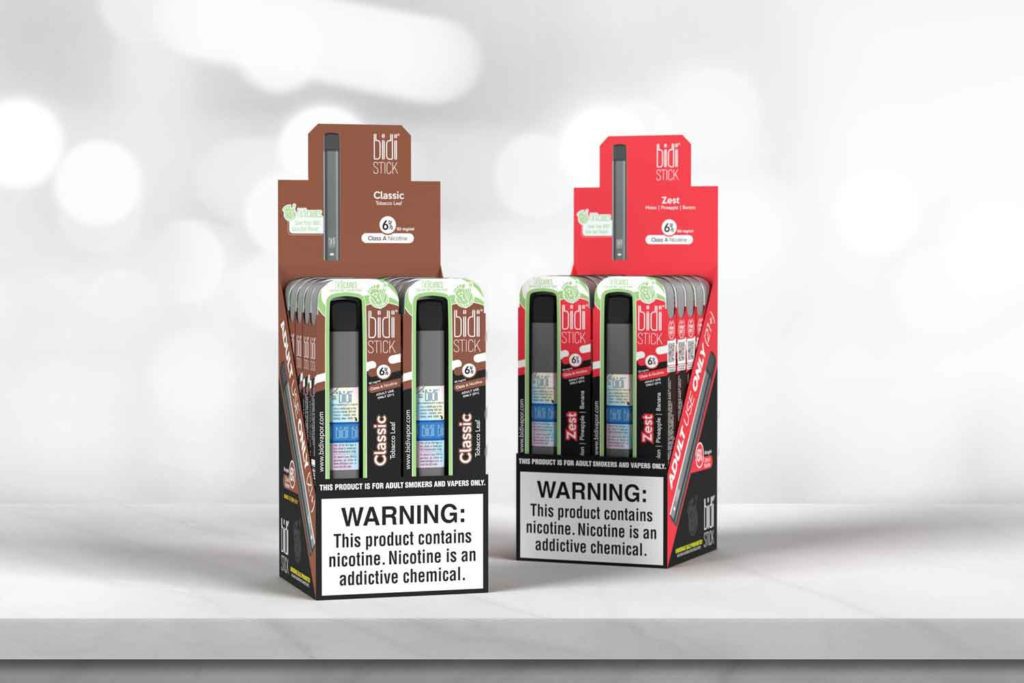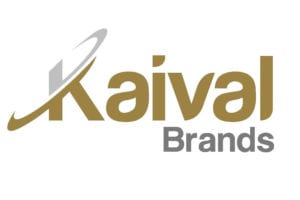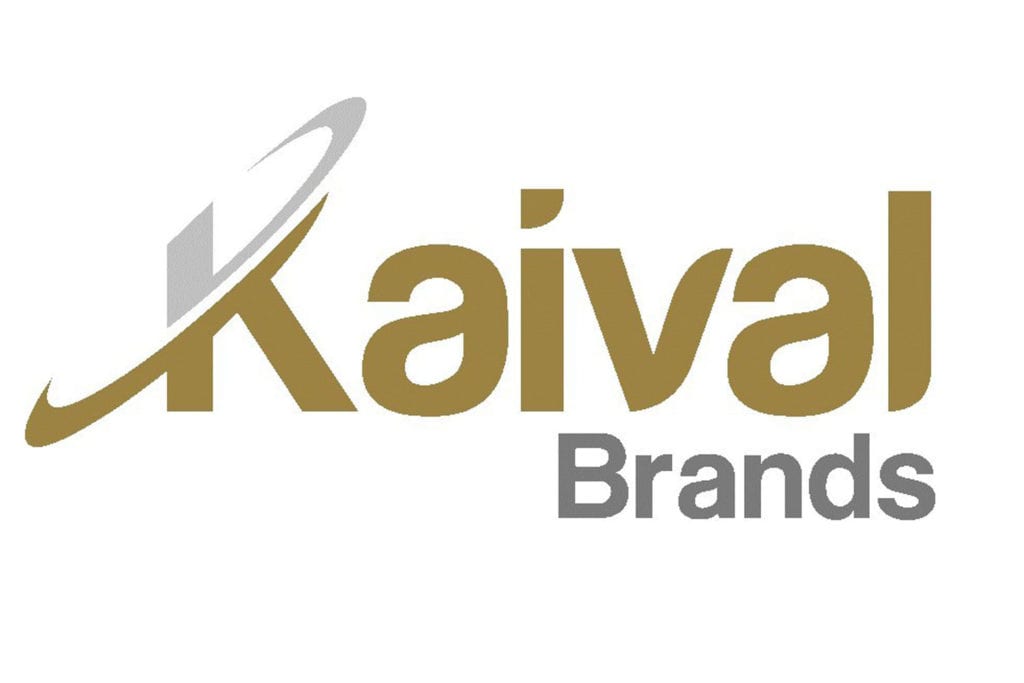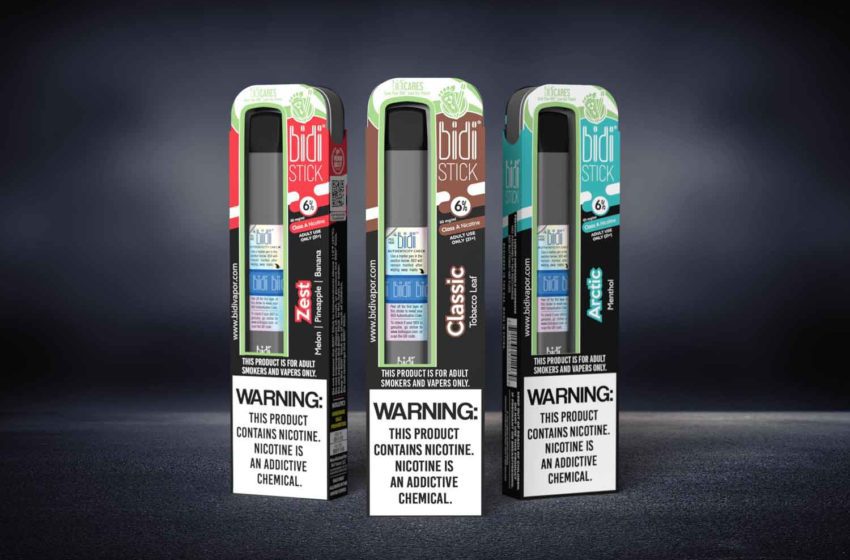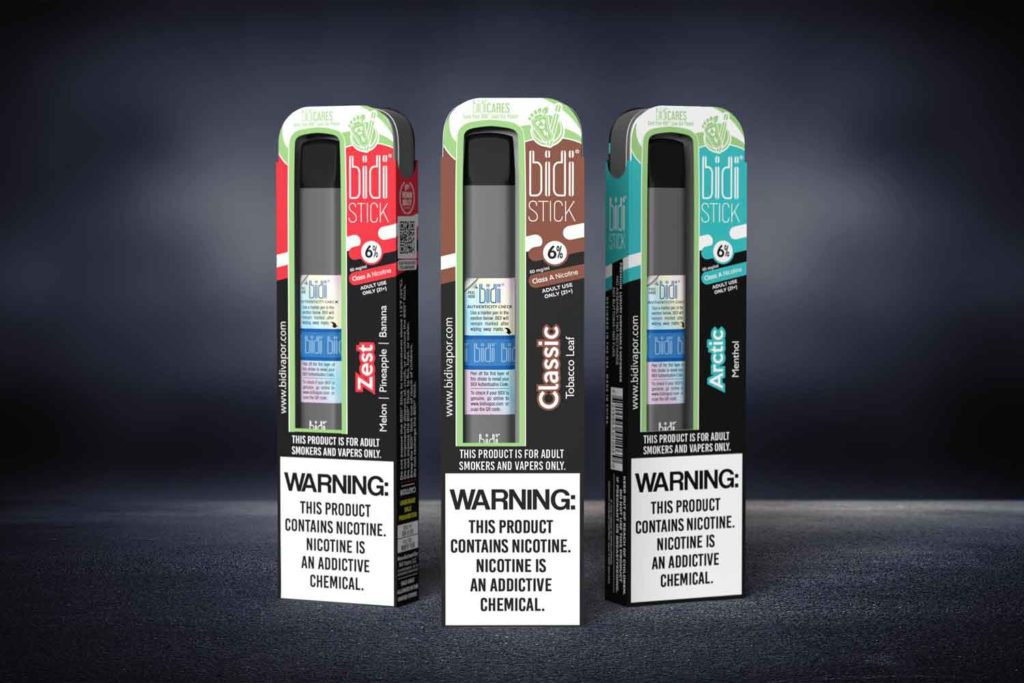
Kaival Brands Innovations Group, the U.S. distributor of Bidi Vapor products, has reached a three-year extension agreement with QuikfillRx, the third-party vendor responsible for executing Kaival Brands’ marketing and sales strategies.
As part of the deal, QuikfillRx will be rebranded as Kaival Marketing Services (KMS) to more properly reflect the commitment of KMS to the success of Kaival Brands.
On Aug. 23, 2022, the 11th Circuit Court of Appeals overruled the Food and Drug Administration’s marketing denial order related to Bidi Vapor’s Bidi Stick electronic nicotine-delivery system. That decision has allowed Bidi Vapor to continue to market, through Kaival Brands, all flavor varieties of the Bidi Stick in the United States.
The three-year extension with KMS was executed in preparation to support the anticipated improved sales volumes arising from this decision and the increase of Bidi Stick sales and marketing activities. In addition to monthly cash payments, which will be lower than during the initial term of the agreement, and a one-time upfront vested common stock option award, KMS will be eligible to receive performance-based common stock option awards from Kaival Brands that can vest annually based on total net revenues and profit margins achieved by Kaival Brands from KMS’ efforts over the term of the agreement, with a maximum vesting to occur upon achievement of $180 million in total net revenues reported within the three-year term.

“KMS has been an integral part of the Kaival story since our inception. Their industry knowledge and expertise, experience working with our team and unmatched around-the-clock service is best in class.”
Eric Mosser, president and chief operating officer, Kaival Brands
“KMS has been an integral part of the Kaival story since our inception,” said Kaival Brands President and Chief Operating Officer Eric Mosser in a statement. “Their industry knowledge and expertise, experience working with our team and unmatched around-the-clock service is best in class. As part of ongoing corporate efforts in anticipation of increasing sales activity following Bidi Vapor’s merits case win, it became clear that reaffirming our relationship with KMS was an important step to manage growth.”
“We are happy to continue our service with Kaival Brands and its commitment to responsible marketing,” said KMS President Russell Quick. “Our combined efforts at preventing underage use of vaping devices and focus on the needs of legal-age smokers looking for an alternative to combustible cigarettes stands as a model for the industry.”


